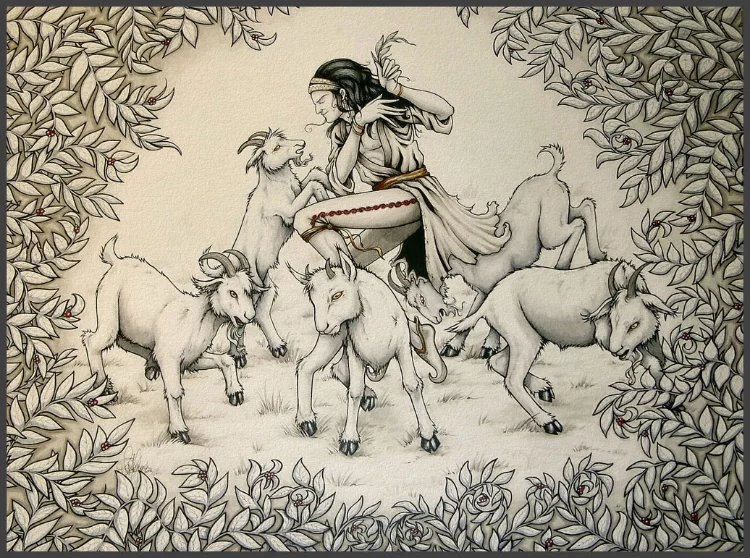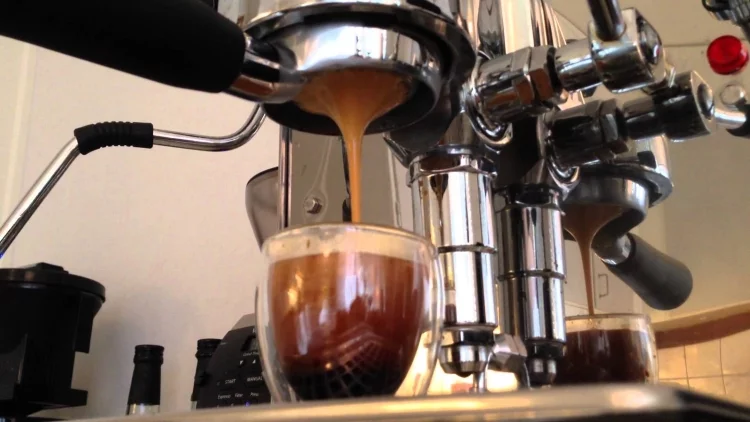Organic Coffee Farming In Mexico – The Struggle For Fairness
by Bryan Albuquerque
It seems that whenever there is a good thing happening such as farming flavorful coffee beans, as they do in places like Mexico on organic farms, certain people have to move in on the action, push the "little guy" out of the way, and reap the financial benefits.
Contents
These people, who are doing the "bullying", could be wealthy individuals, large corporations, or maybe even a country run by a dictator.
Have you ever tried to purchase the "healthy" foods now labeled as organic or "natural", in your local grocery store? They cost way too much money for most people and they even have their own "Natural Foods" aisle. Only the well off seem to frequent that section of the store, or those who are tenacious enough to want to stick to organic products, regardless of the exorbitant prices.
The Ruta Maya Coffee Company
The Ruta Maya Coffee Company from Austin, Texas is one group of environmentalists who are trying to do something about this. They import 100% organic coffee from the Chiapas region in southern Mexico.
Ruta Maya needs to be congratulated for trying to support the local farmers, the rich coffee growing land, and the always important wildlife of this delicate area.
To sum up what they said in this video in regards to Ruta Maya coffee, here are some of the benefits:
- People of Chiapas, Mexico, are an indigenous people who have been farming coffee for thousands of years
- 1500 independent family farms
- Ruta Maya provides opportunities and creates positive new relationships
- Ruta Maya coffee is shade-grown, organic, and "more fair than fair trade"
- Better for the water table and soil
- 150 species of indigenous birds return to the farm every year (vs. the 5-20 that visit corporate coffee farms)
- Arabica coffee beans are partial to shade and altitude, which is where Ruta Maya coffee is grown
- Direct trade agreement (no middlemen or brokers in between), which pays more to the farmers, so that families can afford to work for themselves, and not have to do things like send their kids off to work in foreign-run factories
- Happier farmers means better tasting coffee
- Ruda Maya's goal is simply to produce the best coffee and get it out to the people at an affordable price
- Business is slowly growing, expanding to various chain stores where their product can be sold
Organic Coffee Farming Is Always Best
Ever since the world discovered the value of coffee, this industry has been very volatile. But now the world has discovered that producing food such as coffee in the purest way possible is even more important.
As it turns out, the best coffee is always the most natural, and disrupting the natural order just to get more! more! more! for a short period of time (which, historically, has been the typical corporate mentality), is not only not feasible in the long term, it produces a lower-grade product.
Right from the humble beginnings of coffee in 9th Century Africa, coffee was organic (*read the Origins section of our Coffee Arabica post to find out more about the history of coffee). It has always needed the right amount of moisture, elevation, and shade. Fruit and nut trees provided coffee with not only the shade component, but the rich nutrients to sustain this plant for years to come.

Full Sun Coffee Farming
In the 1970's, full sun varieties of coffee were developed to increase productivity. Money became the number one focus. Chemical fertilizers and pesticides, such as DDT, marathon, and benzene hex chloride, were used because of the lack of nutrients in the soil, with the absence of the trees. The soil, birds, insects, and farmers, all suffered because of this. The natural coffee flavors were compromised, affecting everyone who drinks coffee.
Here is a video documentary made in 1954, which details the coffee production process from seed to cup. As you can see, many things were the same then as they are now, with indigenous people playing a huge role in coffee production from a particular place (such as Brazil, in this video) Do these look like shade-grown farms to you, or full sun coffee farms?
Zapatistas And Coffee In Mexico
While many organic coffee companies are trying to put their best foot forward, in order to encourage a much more fair exchange of the coffee grown in Mexico to the coffee drinkers who demand a quality product, fairness isn't always the name of the game.
Those of us who enjoy a good cup of coffee as a result of the labor by these indigenous peoples in countries such as Mexico owe it to themselves to educate themselves on the struggles surrounding coffee production.
There was a book written in 1994 called, "Zapatista Revolution" by Blake Bailey (still available on Amazon ), about the coffee struggle between the Mexican government and the local Chiapas peoples.
A local Chiapas environmentalist took up the struggle for the indigenous Mayans of that area, to defend their rights. The "Zapatista Army of National Liberation" ((Ejército Zapatista de Liberación Nacional, EZLN), is a leftist group who declared a non-violent war on the Mexican State of Chiapas in 1994.
I don't know about you all reading this, but I'm always a little leery when I see people who cover their faces with bandanas, because it usually indicates violence is not far behind (read: outlaws, gang members, terrorists), but this may be my own ignorance talking. I should educate myself more on this one, because for all I know, the Zapatista garb I'm seeing may represent something completely different. In fact, articles like this one over here would definitely suggest there is much more to the Zapatista movement than I know. Of course, images like this don't really help me to picture non-violence when it comes to the Zapatistas.
Nonetheless, if you live in a land which is being encroached upon by various forces, many of which do not have your best interests at heart, then resistance of some kind is going to happen, and it certainly has happened in Mexico.
To my knowledge, the Zapatistas lead a social movement to assist indigenous people to secure control over their local resources, especially land. Today, EZLN has moved into popular culture with support from a well known American rap-metal l band from Los Angeles, called "Rage Against the Machine", and others.
Here is a video about the Campesino Resistance in Chiapas, which is more or less narrated by Zach, the lead singer from the band Rage Against The machine, who has always felt strongly about the Zapatista movement, as his heritage is Mexican, and raps about it in his band's music. Watch this and get an idea of what is going on down there, and educate yourself, as I am trying to. All of this may seem disconnected from the idea of kicking back and drinking a cup of coffee, but it really isn't to far removed.
If you are a fan of heavy music (I'm not, particularly), then here is an album which is almost an homage to the Zapatista movement, by Rage Against The Machine, called "The Battle Of Los Angeles"…
Chiapas Coffee and Blake Bailey
Chiapas has some of the world's tastiest coffee, but will the peasant farmers campesinos continue to grow it? Will the biodiversity and carbon storage inadvertently protected by this style of coffee production eventually be compromised?
Luckily our researcher, Blake Bailey was determined to find out. He traveled into the hills of the Sierra Madre mountains to a small Mayan village called Chamelho. Believe it or not, he came upon a coffee co-op.
The smells that permeated the air were not the thick and tangible aromas like your neighborhood coffee shop back home, but rather deep and musky, like freshly cut grass.
This coffee cooperative, Majomut, was a melding of the indigenous and the international. The international influence in this case, wasn't a group of greedy financiers, who were after the almighty dollar. No! Those who were here working with the locals, helped to work for the word, "organic", in the truest sense.
The cooperative purchases coffee from 928 member-landowners, paying them fair trade prices in accordance with their certification, then ships their beans to overseas buyers, such as "Cafe Direct", which specializes in ethical coffee and tea purchasing.
Our man Blake was lucky enough to be invited by the Cooperative's manager, Antonio, into the back room to see where the "magic" happens. He explained how the coffee machines transformed the dried coffee cherries into a usable product through a process of shelling, sorting, and roasting the beans. They were bagged under three labels: "local usage," "national market," and "overseas export." The better the quality, the further the destination.
Later, Antonio took Blake on a tour of the coffee orchards. The plantation looked like a forest, shaded by tall pine trees and steep hillsides, thick with shrubbery. Scattered banana trees revealed humans had modified the plantation, and a skinny path led to coffee plants and the shiny red fruits of " Coffea Arabica".
ssShade Grown Coffee Cherries
The forest absorbed the coffee plants. Antonio went on to explain how the coffee plants is a natural part of the local people's life style. If they are farming 5 acres, 2 might be corn, 1 acre of beans, and 2 acres of coffee. The corn and the beans feed the family and the coffee pays for all their other needs and wants.
The shade lowers the heat and evaporation which are an integral part of the coffee plants life cycle. There is a natural compost being created by the flora and fauna, and tree roots prevent erosion in the rainy season.
Scientific studies have discovered how this organic farming has so many benefits for the plants, animals, and people involved, but the coffee flavors and health components far out weighs that of the sun baked beans of today's modern society.

Price, politics, and precipitation, (the 3 P's of Coffee), continue to test the survival of cooperatives and local family farms. The integrity of the system is at stake. Staying a step ahead of these changes will the help of government supported groups and a new coffee education is our only hope.
Please support any and all "organic" foods and if coffee is your choice of beverage, read the labels closely and buy authentic organic beans.
More from my site
 |
 |
 |
 |

About Bryan Albuquerque
Bryan Albuquerque is a coffee lover and vaping advocate who writes reviews and information about coffee accessories and KYG. A former coffee addict, Bryan traded his morning fix for an electronic cigarette in an effort to quit smoking, and has never looked back. He's dedicated to helping others make the switch to vaping, and believes that it's one of the best decisions anyone can make for their health.
Thoughts on "Organic Coffee Farming In Mexico – The Struggle For Fairness"
 |
 |
 |
 |
Get FREE Coffee Gifts now. Or latest free grinders from our best collections.
Disable Ad block to get all the secrets. Once done, hit any button below
 |
 |
 |
 |